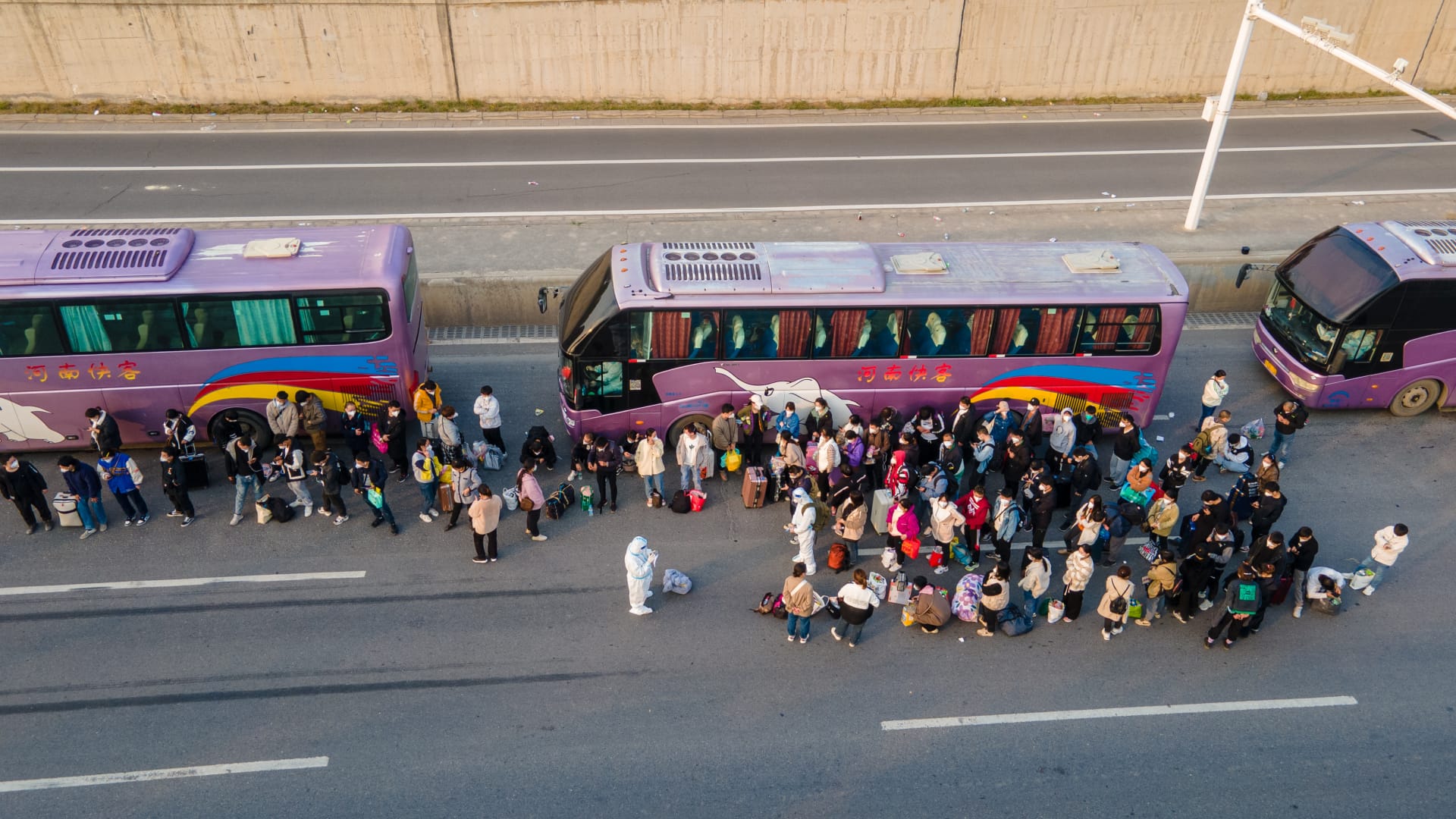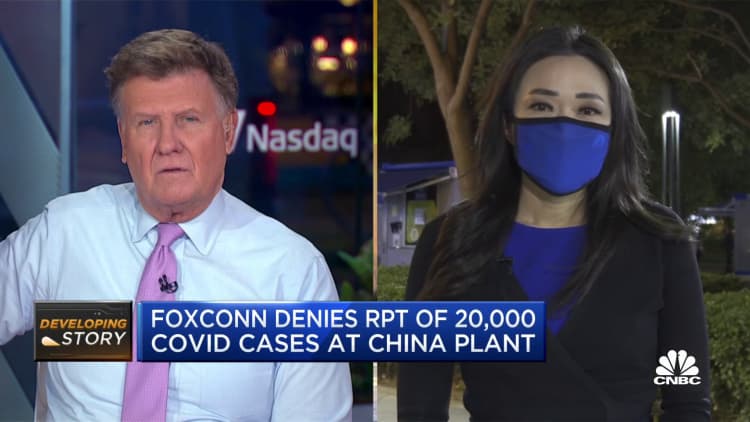
After a Covid outbreak at a Foxconn factory in Zhengzhou, China, some workers chose to go home. Pictured here are the shuttle buses on Oct. 30, 2022.
Vcg | Visual China Group | Getty Images
BEIJING — China’s decision to maintain Covid controls is pushing companies to look to factories outside the country, according to The Economist Intelligence Unit.
“What we are hearing from companies [is] they are moving ahead with their supply chain diversification plans because this start-stop economy is here to stay,” said Nick Marro, global trade leader at The Economist Intelligence Unit.
“If it’s an on-off economy, if things can’t get done, that impacts decision-making,” he said. “We don’t expect companies to leave China. We just expect them to diversify their footprint, China plus one.”
Beijing’s stringent Covid controls helped the country resume work while the rest of the world still struggled with the pandemic in 2020. While other countries have relaxed most restrictions and chosen to “live with Covid,” Beijing has increased virus testing requirements and broad controls since Shanghai was locked down for two months earlier this year.

Authorities have tried to keep important factories in production under what’s called a closed-loop system, in which employees live and work at the same site, or at most only travel between work and home.
A Covid outbreak at Apple supplier Foxconn’s factory in the last few weeks shows the continued challenges factories face in trying to maintain operations while keeping infections from spreading.
“I don’t think we can really extrapolate just from one case, but this is noteworthy because it shows a kind of breakdown in that closed-loop system,” Marro said.

Over the weekend, some Foxconn workers reportedly forced their way out of Covid controls at the factory. Municipal authorities subsequently announced plans to assist workers who wanted to leave the factory to return to their hometowns.
Foxconn did not respond to a CNBC request for comment.
“Obviously if they don’t change this Covid zero policy we are going to see cases like this happening again and again,” said Patrick Chen, head of research for CLSA in Taiwan. He said he expects little change in the policy unless vaccination rates increase.
“I don’t see much of an incremental cost associated with these closed-loop management or production, but there will certainly be some negative impact to the employee morale or the overall quality in the production yield,” he said, noting Foxconn has announced monetary incentives to keep employees at the factory.
Typically, Chen said workers at factories like Foxconn’s receive a monthly salary of about $1,000.
Weak demand softens impact
While Foxconn’s Zhengzhou factory handles important iPhone manufacturing, Chen said weak demand for the smartphone means production disruptions have less of an impact.
The global smartphone market declined by 12% in the third quarter from a year ago, although Apple held up with slight growth, according to Counterpoint Research.
Nearly twice as many U.S. companies cut their investment in China this year versus last year, the American Chamber of Commerce in Shanghai found in a survey this summer.
At the end of the day, it’s that uncertainty which is the biggest problem for investors.
Nick Marro
Economist Intelligence Unit
Just under a third of respondents said they were increasing investment in the country, the survey found. But that figure was down from 38% last year.
CLSA’s Chen said the rising cost of running a sizeable operation in China has prompted tech companies to move manufacturing for less complex products outside the country.
However, he noted it’s difficult for Apple to find another 200,000 to 300,000 workers — as there are at the Foxconn Zhengzhou factory — to make the iPhone outside of China, except in India.
The U.S. smartphone giant announced in September it was manufacturing its latest model, the iPhone 14, in India for the first time. JPMorgan analysts predicted that just 5% of Apple’s global iPhone 14 production would move to India this year.
In the last few weeks, China has announced measures to encourage more foreign investment in manufacturing and specific industries such as animation and beer brewing. The level of implementation remains unclear, especially when controlling Covid outbreaks remains the priority for now.
“Foreign businesses want to be in China, and the companies that are still in the market, I think we can take them at face value when they say they are committed to the Chinese market,” EIU’s Marro said. “They are kind of waiting for signals that the operational environment and the macroeconomic environment will improve.”
“The biggest problem is those signals aren’t coming,” he said. “At the end of the day, it’s that uncertainty which is the biggest problem for investors.”
— CNBC’s Arjun Kharpal contributed to this report.
